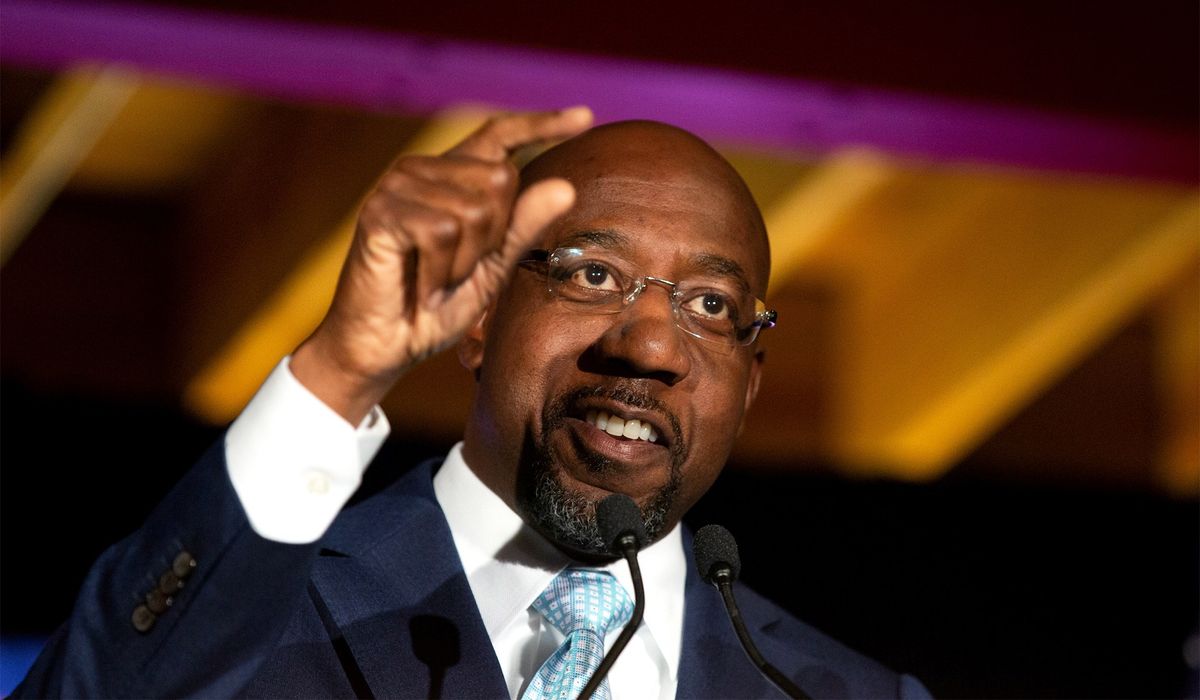Who is Reverend Raphael Warnock?

A few minutes every morning is all you need.
Stay up to date on the world's Headlines and Human Stories. It's fun, it's factual, it's fluff-free.
Whether Warnock can win in a state that has never elected a Black person to the Senate and hasn’t elected a Democrat there in 24 years is unclear, but many believe he faces an uphill battle.
With Republican or Democratic control of the Senate hanging on the outcome of two Georgia runoff elections, much of the party’s hopes rest on Democratic candidate Reverend Raphael Warnock. Warnock, who has never been in elected office, faces a tough fight against incumbent Republican Senator Kelly Loeffler.
Powerful Atlanta presence
Despite his lack of political experience, Reverend Warnock has been leading from the pulpit for years. He is currently the pastor of Ebenezer Baptist Church in Atlanta, a position Dr. Martin Luther King Jr. once held. Though not a political position, the pastor maintains strong ties to the community and Atlanta Magazine has recognized Warnock as one of “Atlanta’s 55 Most Powerful.”
In his debates and speeches, Warnock has often spoken of his humble beginnings.
The 11th of 12 children, Warnock was born and raised in public housing in Savannah, Georgia. While his family struggled with money during his youth, Warnock was able to enroll at Morehouse College where, with the help of student loans and Pell grants, he earned his Ph.D.
Warnock was ordained as a minister and began serving as senior pastor at Ebenezer Baptist Church in 2005. There he became “an advocate to expand health care coverage and to ensure hardworking Georgians can make a living.”
From the pulpit to politics
Warnock has used his platform to comment on political and social issues throughout his time as pastor. On his campaign website, Warnock claims that he “will bring to Washington the concerns of struggling Georgia families who wonder why no one is looking out for them.”
While as pastor and now during his campaign, Warnock has spoken of the need for criminal justice reform, calling for reforming a justice system that disproportionately imprisons the poor and people of color.
Despite attack ads from Republicans, Warnock has stated that he does not support defunding the police. In October, he tweeted, “Let me be clear, I oppose defunding the police. But we have to respect law enforcement enough to hold them accountable.”
His campaign website explains further, saying, “Responsibly fund police departments while increasing accountability and ensuring our communities can support critical services outside of the criminal justice system.”
Warnock has also called for the expansion of the Affordable Care Act (also known as Obamacare). Warnock has stated that he bases his positions on health care, as well as many other issues, on the gospel. “I’ve read the Gospels a few times, and Jesus spent a lot of time healing the sick,” he said. “Even those with pre-existing conditions.”
In 2014, Warnock was arrested for protesting then-Governor Nathan Deal’s refusal to expand Medicaid in Georgia under the Affordable Care Act.
In 2017, Warnock was arrested again after protesting the Trump administration’s budget proposal and the Senate’s health care bill. After he was released, he issued a statement saying,“if this mean spirited budget were an EKG, it would indicate that America has a heart condition. The government is taking student aid, job training and medicine from those who need it most in order to give a tax cut to those who need it least. We came to Washington as voices of healing and justice. America is better than this. That’s our message. And when I consider those who will suffer, my getting arrested is a small price to pay.”
Warnock has said he’s passionate about voting rights and considers the right to vote to be “a matter of human dignity.”
After Hurricane Katrina in 2005, Warnock organized “freedom caravans” to help drive New Orleans voters who had been evacuated to Georgia back to Louisiana so they could vote. In an interview with The Washington Post, Warnock cited his participation in organizing the New Georgia project with former Georgia gubernatorial candidate Stacey Abrams, registering 400,000 new voters in Georgia before the election in November.
If Warnock wins the Senate seat, he’s vowed to make voting easier and safer by expanding vote-by-mail options, making Election Day a federal holiday and funding the United States Postal Service (USPS).
Republicans nationwide have claimed that Warnock is too liberal, a claim Loeffler has latched onto, referring to Warnock numerous times during their debate last Sunday as “Radical liberal Raphael Warnock.” Republicans have largely attacked Warnock for his allegedly “socialist” views and his ties to controversial theologians including the Reverend Jeremiah Wright and Dr. James Hal Cone.
In response, Warnock has denied that he would push socialist policies, saying “You don’t solve the problem simply by calling something ‘socialism’ … We decided long ago that we ought to pool our resources and pick up everybody’s garbage so that free enterprise can take place. There are some things we have in common."
In the November elections, Warnock garnered the most support, receiving 32.9% of the vote in a crowded field. Loeffler was challenged by Doug Collins, another Republican, and together their votes tallied 45.9% of the vote. In Georgia, the Senate race must be won by a majority, with the top two candidates going into a runoff.
In his closing remarks on the debate stage with Loeffler, Warnock urged people to register to vote, saying, “Health care is on the ballot. Voting rights is on the ballot. Criminal justice reform is on the ballot.”
Whether Warnock can win in a state that has never elected a Black person to the Senate and hasn’t elected a Democrat there in 24 years is unclear, but many believe he faces an uphill battle.
Have a tip or story? Get in touch with our reporters at tips@themilsource.com




Comments ()